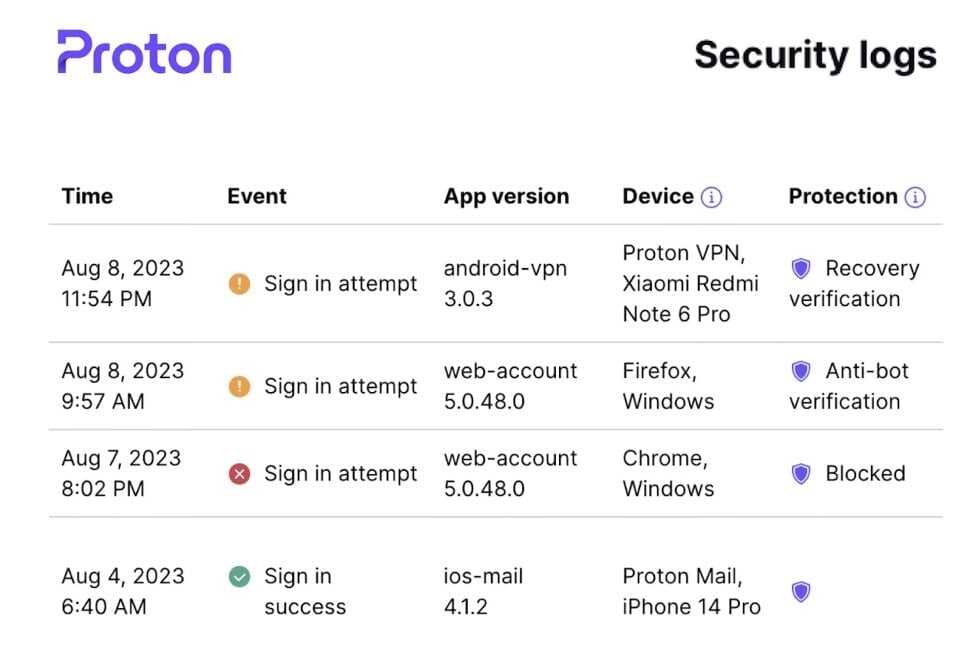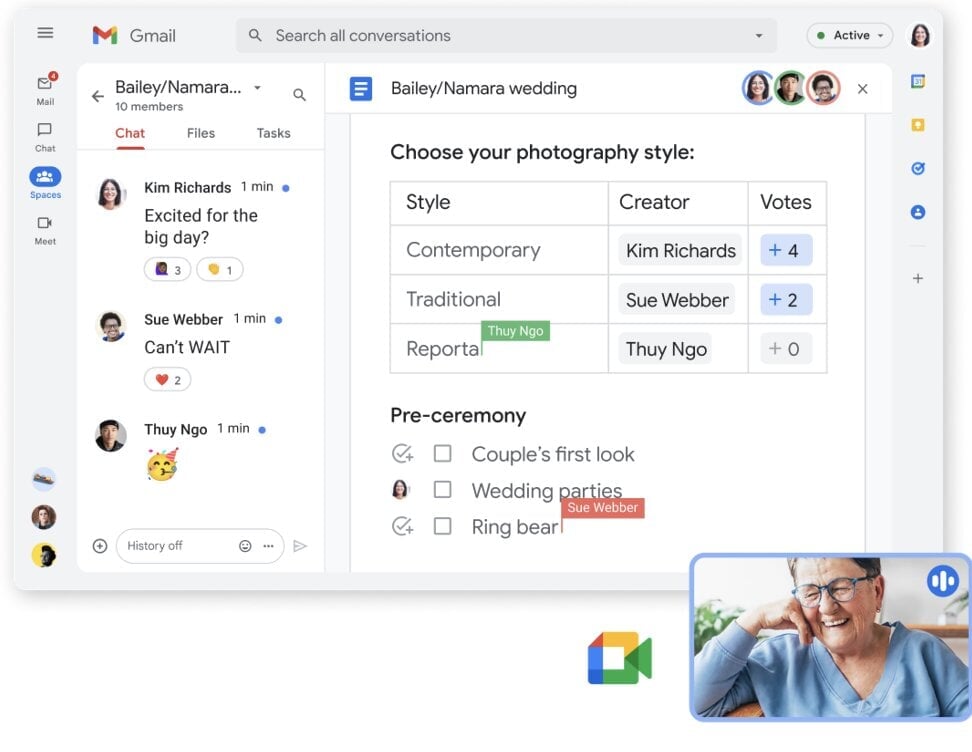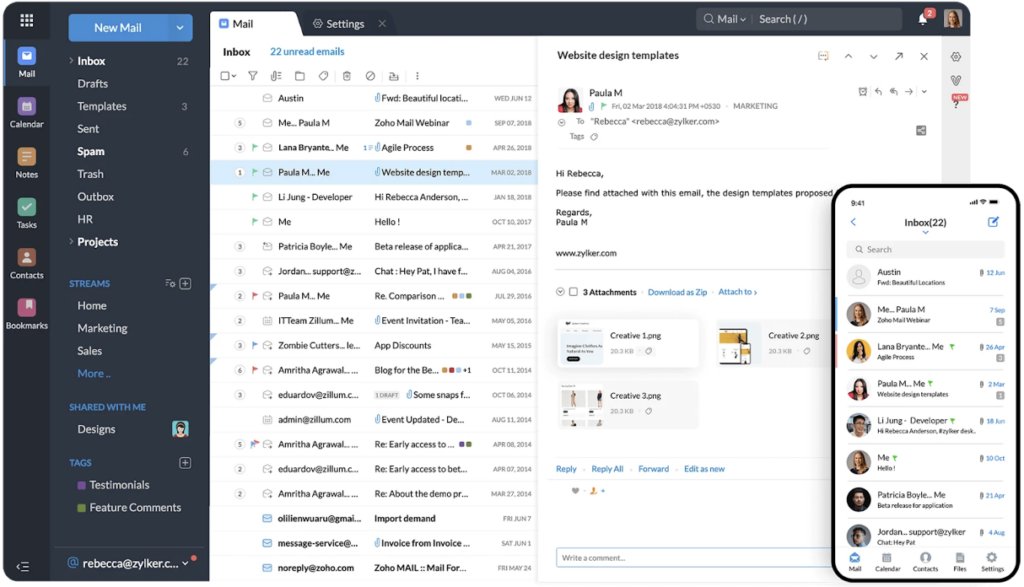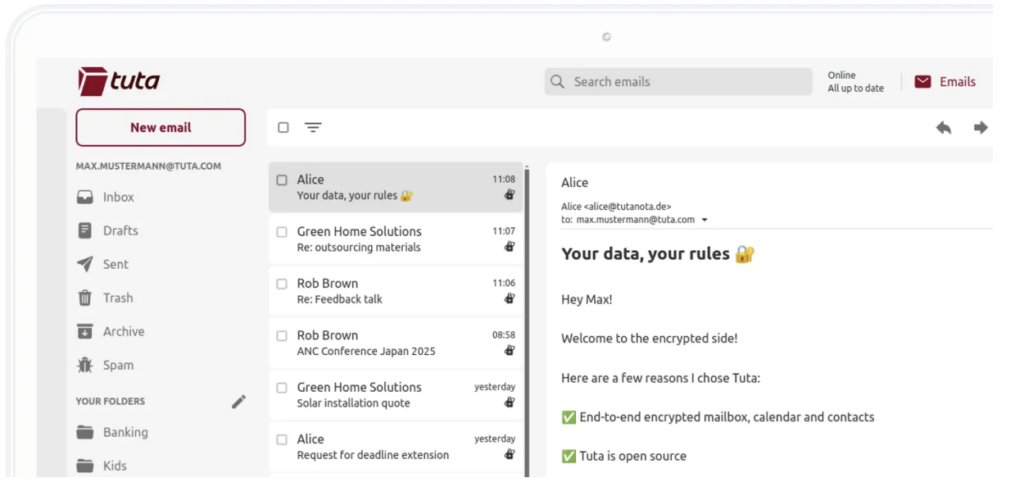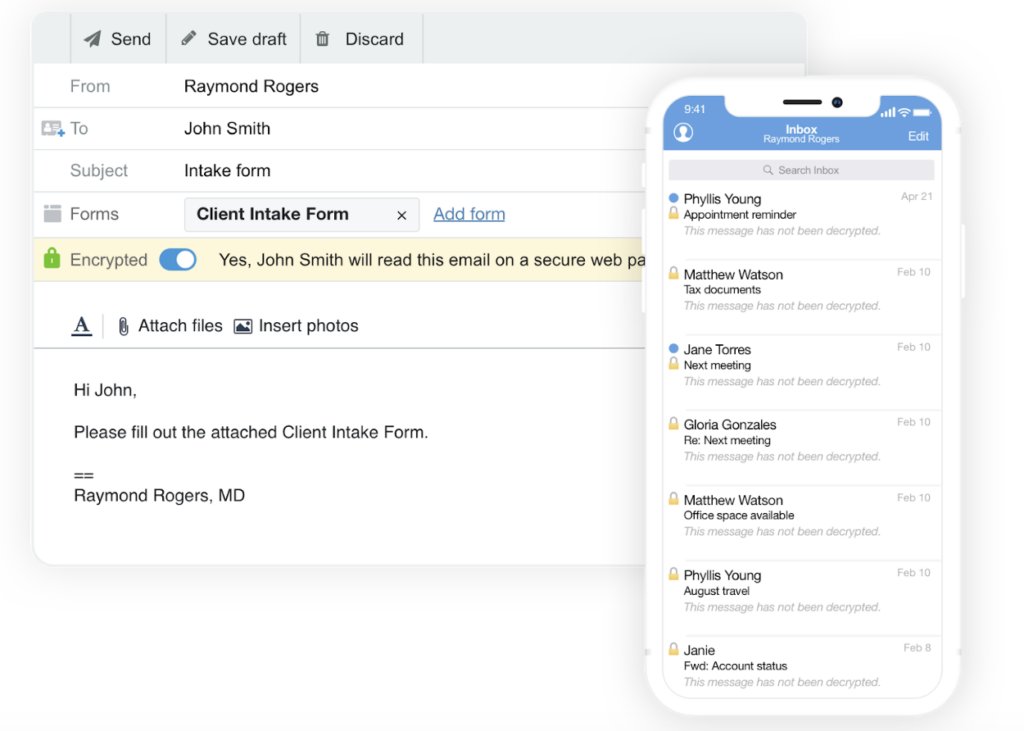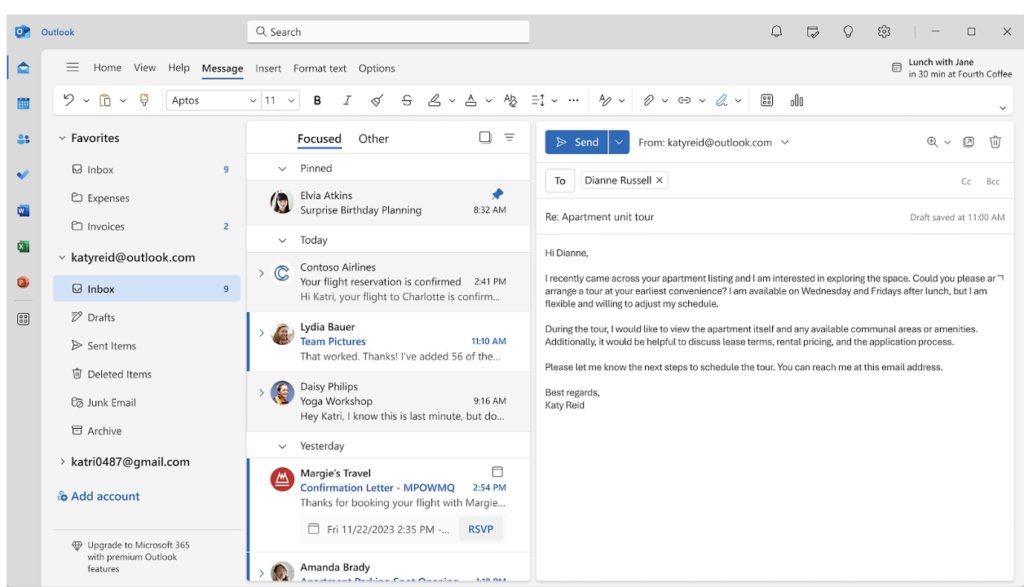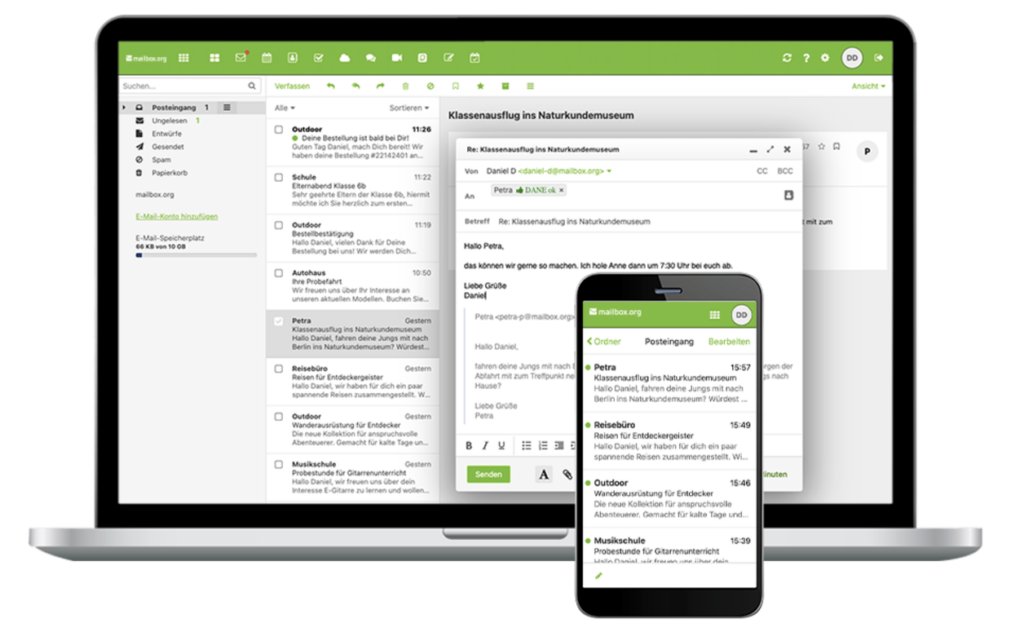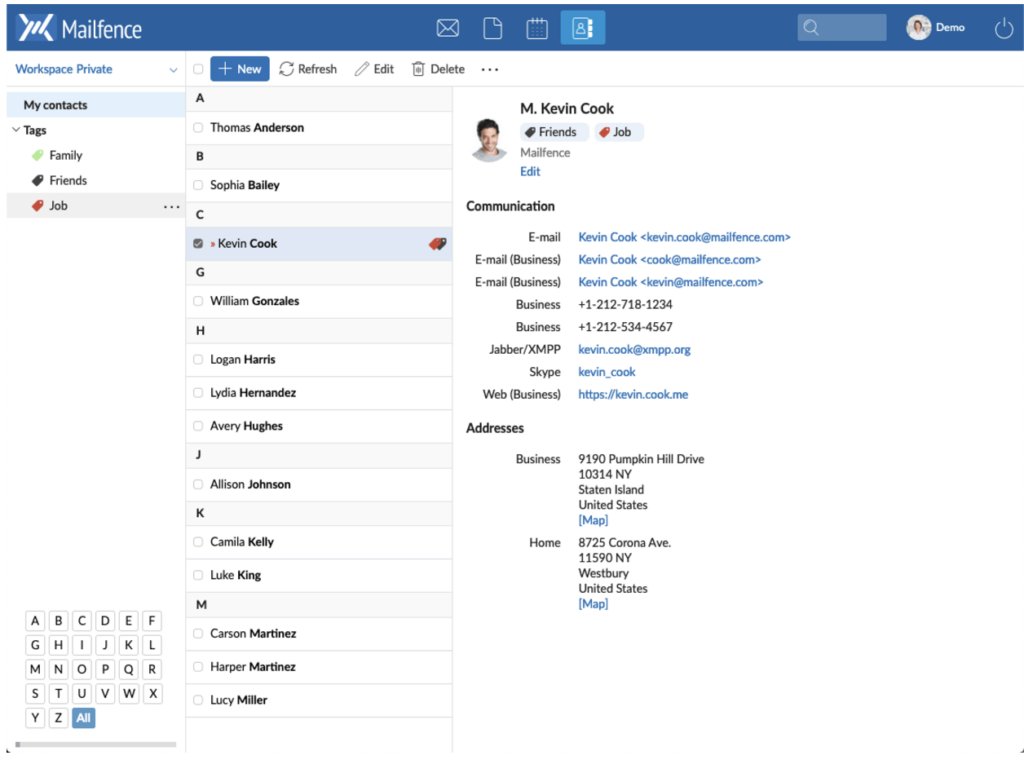Top 7 Proton Mail Alternatives for Businesses in 2025
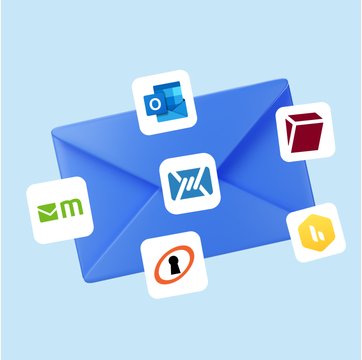
Table of contents
When it comes to secure email communication, Proton Mail has long been a popular choice for businesses.
Known for its robust encryption and commitment to privacy, Proton Mail is often the go-to solution for organizations that prioritize keeping sensitive conversations safe from prying eyes.
However, while it’s a great tool, it might not fit every business perfectly. Maybe your team needs better integrations with existing workflows, a more collaborative interface, or even lower pricing plans that still offer top-notch security.
In this blog, we’ll discuss seven excellent alternatives to Proton Mail that might better suit your business needs. By the end, you’ll have a clear picture of the options available and which could fit you best.
Table of Contents
- What is Proton Mail?
- Why look for a Proton Mail Alternative?
- Top 7 Proton Mail Alternatives
- FAQs
- Making an informed switch: Which email service is right for you?
What is Proton Mail?
Proton Mail is a secure email service that puts privacy first. Think of it as your regular email service with a built-in security guard.
At its core, Proton Mail is an encrypted email platform based in Switzerland that offers end-to-end encryption for your messages. Unlike traditional email providers that scan your emails for advertising purposes, Proton Mail ensures that your conversations remain so private that not even Proton can read them.
Some key features of Proton Mail are as follows:
1. Your emails are locked with end-to-end encryption
Every email you send is automatically encrypted, ensuring only you and your recipient can read them. Imagine sending your message in an unbreakable digital safe only the intended receiver can open. Even attachments get this same level of protection, keeping your sensitive documents secure.
2. No one can scan your inbox – not even Proton
While other email providers might scan your messages for advertising purposes, Proton Mail’s zero-access design means precisely what it says – zero access to your private communications. This gives you complete control over your information, with no surprises.
3. Swiss privacy laws keep your data protected
Being headquartered in Switzerland isn’t just about location – it’s about protecting your data by some of the world’s strictest privacy laws. Your emails get the same privacy protection as a Swiss bank account.
4. Built-in protection against sneaky trackers
Every email you receive is automatically screened for tracking elements. Proton Mail blocks these digital spies, preventing companies from monitoring when you open emails or click links. This means no more unwanted surveillance of your email habits.
5. Smart security against phishing attempts
The integrated PhishGuard system protects your inbox by flagging suspicious emails and warning you about potentially dangerous websites. It’s like having a security expert check every email before it reaches you.
Why look for a Proton Mail Alternative?
While Proton Mail stands out for its zero-knowledge encryption and strict Swiss privacy laws, helping millions of users protect their communications, it might not meet every business need.
Here are some of its downsides:
- Proton Mail’s free plan gives you limited storage, which can fill up quickly if you get many emails. To get more storage, you must upgrade to a paid plan—a significant drawback for businesses or heavy users.
- Proton Mail’s end-to-end encryption only works when both parties use Proton Mail. Outside of that, things can get a bit less secure.

- The lack of phone support and reliance on email-based assistance often results in slow resolution times for complex issues.
- The platform struggles with handling large numbers of emails, resulting in slower load times and reduced functionality. This also makes finding specific information harder.
- You can only search by email addresses, not the content within emails. It’s frustrating trying to find specific details in a long thread.
Given these limits, Proton Mail might not cut it for businesses needing comprehensive email tools. Hence, exploring alternatives could be a smarter choice.
Top 7 Proton Mail Alternatives
Looking for a better Proton Mail alternative? Here are our top picks:
| Software | Starting Price | Free Trial | G2 Rating |
| Gmail | $12 per user per month | Unlimited | 4.6 |
| Zoho Mail | $1 per month | 15 days | 4.4 |
| Tuta | $3.80 per month | Unlimited | 4.6 |
| Hushmail | $11.99 per month | 30 days | 3.7 |
| Microsoft Outlook | $6 per month | Unlimited | 4.5 |
| Mailbox.org | $1.06 per user per month | 30 days | 4.0 |
| Mailfence | $2.50 per month | Unlimited | 4.7 |
1. Gmail (Best for: Smart AI-powered email sorting)
Gmail is Google’s flagship email service, combining powerful security with AI-driven features. At its core, it’s an enterprise-grade platform offering protection against spam, phishing, and malware. With Gemini integration, users get AI-powered writing assistance for crafting professional emails.
As a Proton Mail alternative, Gmail offers significantly more storage (15GB vs 500MB free tier),superior AI capabilities for email management, and robust integration with productivity tools.
While it may not match Proton Mail’s end-to-end encryption by default, Gmail provides enterprise-level security, including advanced phishing protection and multi-layer threat defense, making it suitable for businesses prioritizing convenience alongside security.
Key Features:
- Messages are sorted into categories like Primary, Social, and Promotions, helping users stay organized.
- Powerful search operators and filters make finding specific emails or organizing your inbox a breeze.
- Gmail includes phishing and spam protection, secure login methods, and encryption for safeguarding sensitive data.
- Gemini, Gmail’s personal writing assistant, makes email communication more polished and efficient.
- AI-driven features like Smart Reply and Nudges save users time and enhance productivity by automating routine tasks.
Limitations:
- Free storage allocation of 15 GB is shared with other Google services, which can quickly run out.
- Many advanced features, particularly those aimed at businesses, are locked behind paid plans.
Pricing Plans:
Gmail offers both free and paid plans, catering to various needs:
- Free: $0 per user per month
- Business Standard: $12 per user per month
2. Zoho Mail (Best for: Startups and mid-size businesses looking for affordable options)
Zoho Mail is a privacy-focused business email service that operates without ads while maintaining strong security standards. It features end-to-end encryption, 24/7 data center surveillance, and guaranteed uptime.
The platform excels in its administrative capabilities, offering comprehensive control panels for managing settings, user accounts, and group policies, all while ensuring compliance with data protection regulations.
Compared to Proton Mail, Zoho Mail provides better business value with its $1/user pricing and richer collaboration features. While Proton Mail focuses on individual privacy, Zoho Mail balances security with business functionality, offering superior admin controls, seamless integration with workplace tools, and more flexible storage options.
Key Features:
- Its data centers offer high levels of security, 24/7 surveillance, and a reliable 99.9% uptime guarantee.
- Zoho Mail’s control panel lets admins easily manage settings, user accounts, group aliases, and policies.
- Zoho Mail helps organizations stay compliant with legal and policy requirements by offering email retention for storing messages securely for a set duration.
- Its eDiscovery feature ensures quick and easy access to archived emails when needed.
Limitations:
- Users often criticize Zoho Mail’s interface for feeling outdated.
- Some have also experienced issues with email migration.
Pricing Plans:
Zoho Mail offers a range of pricing plans designed for businesses of all sizes:
- Mail Lite: $1 per user per month, billed annually
- Mail Premium: $4 per user per month, billed annually
- Workplace: $3 per user per month, billed annually
A 15-day free trial is available for the Mail Premium plan. No credit card required.
3. Tuta (Best for: Quantum-level privacy protection)
Tuta is a secure email service that prioritizes quantum-level privacy protection through end-to-end and zero-knowledge encryption. It operates on 100% renewable energy and offers unique features like encrypted calendar metadata and contact details. The service provides seamless encryption for external recipients and maintains strict adherence to privacy laws, particularly GDPR compliance.
As a Proton Mail alternative, Tuta stands out with its more comprehensive encryption approach, covering not just email content but also subject lines and metadata. Unlike Proton Mail, Tuta includes post-quantum cryptography protection and offers better sustainability credentials through its commitment to renewable energy.
Key Features:
- Tuta’s end-to-end and quantum-safe encryption ensures your data is safe from both present and future threats.
- Tuta allows you to send encrypted emails to people using other email services like Gmail or Yahoo.
- It doesn’t request unnecessary personal data, like phone numbers, and adheres strictly to privacy laws, especially GDPR.
Limitations:
- The search feature is slow, especially when you need to dig through many emails.
- If you forget your password, there’s no recovery option.
Pricing Plans:
Tutanota offers both personal and business email plans:
Personal plans:
- Free: $0 per month
- Revolutionary: $3.80 per month
- Legend: $10.13 per month
Business Plans
- Essential: $7.60 per user per month
- Advanced: $10.13 per user per month
- Unlimited: $15.19 per user per month
4. Hushmail (Best for: Healthcare businesses looking for HIPAA-compliant tools)
Hushmail is a HIPAA-compliant secure email service for healthcare professionals and businesses handling sensitive information. It combines encrypted email with secure web forms and e-signatures in one platform. The service offers custom domain support, integrated form-building tools, and a secure message center for confidential communications.
Compared to Proton Mail, Hushmail provides specialized features for healthcare and professional services, including HIPAA compliance and built-in secure form capabilities. While Proton Mail focuses on general privacy, Hushmail offers industry-specific solutions with better integration of e-signatures and web forms, making it particularly valuable for healthcare providers and businesses requiring regulatory compliance.
Key Features:
- You can use your own domain name (@yourcompany.com) or choose from one of Hushmail’s domains.
- Hush Secure Forms lets you quickly move paper forms online with its easy-to-use drag-and-drop builder. You can customize forms from scratch or use pre-made templates.
- Hushmail offers electronic signatures, allowing clients to sign documents from any device. You also receive detailed records of who signed what.
- Your clients read and reply to your encrypted emails in a secure environment via Hushmail’s Private Message Center.
Limitations:
- Lacks additional security features like antivirus and anti-spam protection.
- Risk of losing all data if a passphrase is reset.
Pricing Plans:
Hushmail offers a variety of pricing plans tailored to different sectors, including healthcare, small businesses, law, and personal use. It offers three healthcare-specific plans:
- Starter: $11.99 per month
- Recommended: $24.99 per month
- Custom: $47.99 per month
All plans come with a 60-day money-back guarantee, and you get a one-month free trial for its healthcare plans.
5. Microsoft Outlook (Best for: Businesses already familiar with Microsoft 365 ecosystem)
Microsoft Outlook is a comprehensive email and personal information management platform integrated within the Microsoft 365 ecosystem. It offers up to 1TB of cloud storage, advanced email organization features, and seamless integration with other Microsoft tools.
As a Proton Mail alternative, Outlook offers stronger business integration capabilities and significantly more storage. While it may not match Proton Mail’s encryption-first approach, it provides robust security through Microsoft 365’s advanced safeguards, including ransomware protection.
Key Features:
- Outlook offers up to 1TB of cloud storage, depending on the subscription plan, so you can save, access, and share files easily.
- Users can customize email signatures and use advanced formatting options for professional-looking communications.
- Outlook’s Focused Inbox intelligently sorts important emails from less critical ones.
- Its security features, enhanced through Microsoft 365, protect your data with advanced safeguards, including ransomware protection.
Limitations:
- Many users face difficulty in managing large email attachments.
- Some report syncing and indexing errors with the search functionality.
Pricing Plans:
Microsoft 365 offers plans for both home and business use.
For Business:
- Business Basic: $6 per user per month
- Business Standard: $12.50 per user per month
- Business Premium: $22 per user per month
For Home:
- Outlook (Free): Free
- Microsoft 365 Basic: $1.99 per month
- Microsoft 365 Personal: $6.99 per month
- Microsoft 365 Family: $9.99 per month
6. Mailbox.org (Best for: Businesses looking for a sustainable solution)
Mailbox.org is a German-based secure email provider that emphasizes both privacy and sustainability. It offers encrypted email, cloud storage, and video conferencing services powered by 100% renewable energy. The platform features secure email hosting, encryption at rest and in transit, and S/MIME message encryption, all operating under strict German data protection standards.
Compared to Proton Mail, Mailbox.org provides a more comprehensive business suite with integrated productivity tools and video conferencing capabilities. While both prioritize privacy, Mailbox.org’s German jurisdiction offers different privacy protections, and its green energy commitment adds an environmental benefit. The platform’s competitive pricing ($1.06/user/month) and broader feature set make it an attractive alternative for environmentally conscious businesses.
Key Features:
- It prioritizes privacy and security with strong encryption, GDPR compliance, two-factor authentication, and email encryption.
- It lets you set up email addresses with custom domains.
- Cloud storage and secure video conferencing are also part of the service.
- You also get integrated productivity tools such as a calendar, text processor, and spreadsheet functionality.
Limitations:
- Limited storage capacity, which some users find insufficient compared to other email providers.
- Limited filtering capabilities.
Pricing Plans:
Mailbox.org offers three pricing plans:
- Light: $1.06 per user per month
- Standard: $3.17 per user per month
- Premium: $9.50 per user per month
All plans come with a 30-day free trial.
7. Mailfence (Best for: Businesses that prioritize privacy end-to-end OpenPGP encryption)
Mailfence is a Belgian-based encrypted email service that focuses on OpenPGP end-to-end encryption and user freedom. It provides a complete suite including encrypted emails, calendars, and document storage. The platform stands out with its integrated keystore management, digital signatures, and strong legal protection under Belgian privacy laws, all while maintaining a zero-tracking policy.
As a Proton Mail alternative, Mailfence offers more flexibility in its encryption implementation, allowing users to choose which emails to encrypt and supporting the OpenPGP standard for better interoperability. Unlike Proton Mail’s fixed approach, Mailfence provides more control over security features while maintaining strong privacy protections.
Key Features:
- Mailfence encrypts your emails using OpenPGP, ensuring that no one, including Mailfence itself, can read them during transmission.
- Mailfence operates without advertising, trackers, or data collection, preserving user privacy.
- Users can set up custom email domains and aliases for greater privacy and professionalism.
- Mailfence supports access through the web, mobile apps (iOS and Android),and via POP/IMAP/SMTP.
Limitations:
- Additional efficiency features only unlock with paid tiers, while ProtonMail offers more features in its free plan.
Pricing Plans:
Mailfence offers three pricing plans:
- Free: $0 per month
- Base: $2.50 per month, billed annually
- Entry: S3.50 per month, billed annually
FAQs
Is there a better alternative to Proton Mail?
The “best” alternative depends on your needs. Gmail offers better AI features, Hushmail excels in healthcare compliance, while Tuta provides quantum-safe encryption. Choose based on your priorities.
Is Zoho Mail better than Proton Mail?
Zoho Mail offers better value for businesses with its $1/user pricing and collaboration features. However, Proton Mail has stronger privacy features. Consider your budget versus security needs.
Is Proton Mail safe anymore?
Yes, Proton Mail remains secure with end-to-end encryption and Swiss privacy protection. Its security model hasn’t been compromised and continues to protect user communications effectively.
What is similar to Proton Mail?
Tuta and Mailfence are similar to Proton Mail, offering end-to-end encryption and zero-knowledge privacy. Both provide comparable security features with added benefits like quantum-safe encryption and OpenPGP flexibility.
Which is safer, Gmail or Proton Mail?
Proton Mail offers stronger privacy with end-to-end encryption and zero-knowledge design. While Gmail has enterprise-level security and malware protection, it lacks default end-to-end encryption and can scan email contents.
Making an informed switch: Which email service is right for you?
Proton Mail is a strong contender for those who prioritize privacy, but as we’ve seen, it comes with its limitations. If its minimalistic features or limited integrations leave you wanting more, there are several great alternatives, each tailored to different needs.
Choosing the right email platform depends on what matters most to you:
- Privacy and security: Proton Mail or similar encrypted services work best.
- Collaboration and usability: Platforms like Gmail shine with their seamless integration into productivity tools.
But what if you’re managing team emails or customer communication? This is where Hiver stands out as a unique alternative.
Hiver isn’t just another email service—it’s a tool that works seamlessly inside Gmail, making team collaboration and email management effortless. Hiver offers an Outlook-like platform for Outlook users, ensuring a familiar experience.
You can assign emails to team members, track progress without messy forwards or CCs, and easily collaborate using internal notes.
Ready to do more with your email?











